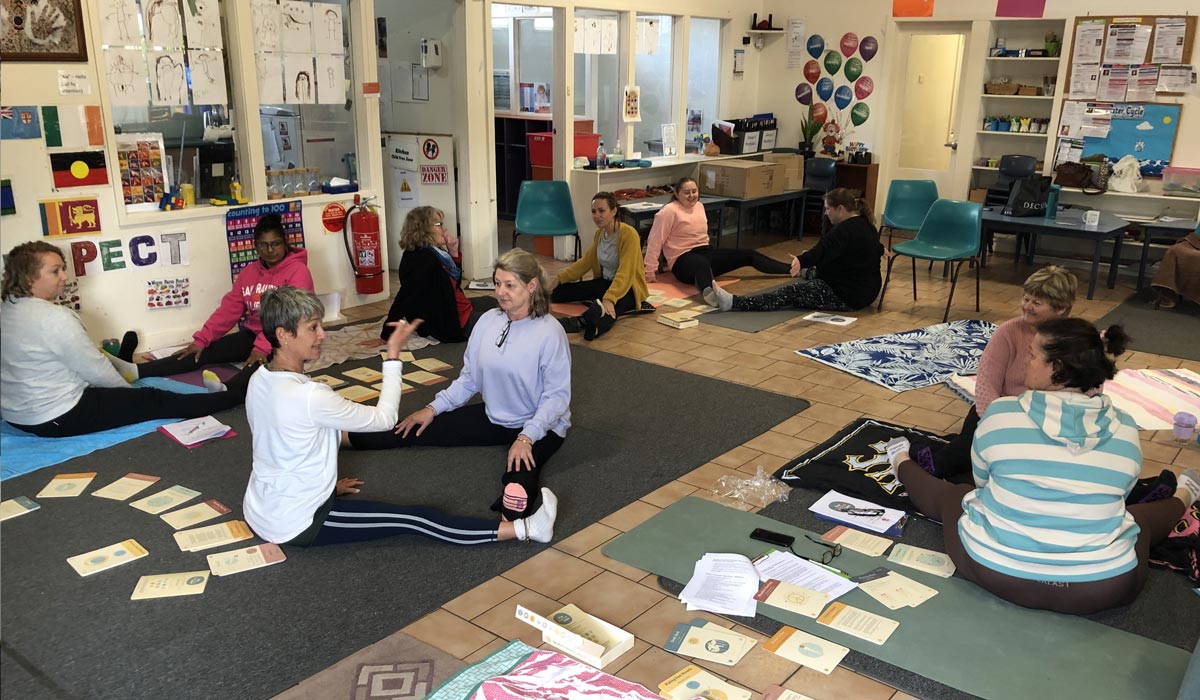Inspiring changes at Ambrose ELC implementing the Karma Classroom program
Hear from Rini Roy, Ed Leader at Ambrose Early Learning.
After the Karma Classroom PD day in Dec 2023, I personally reflected on our preschool's current transitions and routines. This was because I was intrigued by ''Peace Pause'' and ''Slow Pedagogy'' concepts mentioned by Beth and how they are beneficial for the children we attend to and for our own mental and emotional well-being.
Changes we made to the environment and routines
- We reflected and brainstormed as a team and decided to rework our daily routines and rituals to ensure we are providing children with a conducive environment and time for their mental and emotional wellbeing, maximising their capacity to engage, learn and interact. Our current routines and rituals (from March 2024) have only two group time learning designated during lunch and afternoon tea transitions which are mainly focussed on group discussions, sharing stories, reflections on the day or singing. We have created different learning and play zones across our rooms and outdoor environment that children have access to throughout the day. These zones provide children the opportunities to engage with pre- literacy, pre- writing, numeracy, STEAM etc. resources and experiences. Room teachers and educators space themselves out according to children's movements and engagement to support and extend on their learnings.
- We also added child- sized yoga mats and created a space within our room for mindful breaks where children had access to yoga mats, Karma Classroom activity cards, sensory resources like squishes, fidgets etc. The room also has visuals of ''how many children'' can access the space at a time. They can count or read the number of children and help each other take turns.
- Towards the end of the day, we now reflect with our children about their day- what was the most fun part, their least favourite part, what changes they would like to see, what resources they want to see int he room etc. This has helped us get an insight into what's beneficial for children's engagement and positive interactions with their peers.
How we introduced our learnings from Karma Class PD
- Mindful breathing and movements have been a great hit amongst children and teachers where we all challenged ourselves to position ourselves and slow ourselves down. Initially we had the Karma Classroom activity cards placed on a table easel so all children and teachers could clearly see the poses we are going to explore. With small steps instructions teachers were able to communicate what we are trying to achieve. We ensured that we focussed on only 2-3 poses in a session so that we aren't ''hurrying'' children to practise these poses. As children became more and more comfortable and confident, we invited them to lead these sessions where they picked a card, placed them on the easel and practising the poses while directing a group of children. We were intentional in keeping our groups smaller- not more than 8-10 children in a single group.
- Instead of having a designated time/ routine for mindful breathing and body movements, we teachers decided to be ''attuned to and be responsive'' to our children's needs and feelings. In another words, read the room! When we felt that our day is very busy or chaotic due to certain combinations of children, changes in the home environment or staff absences (familiar staff) we would jump into breathing or body movement sessions spread across the room with different teachers leading them. This way children who did not want to participate continued to engage in their activities and some children were intrigued and excited to join their teachers with either the activity cards or breathing ball or the enthusiasm to lead these sessions.
- Some children needed that one- on- one intimate interaction to help regulate themselves, especially the ones experiencing separation anxiety or disappointments/ conflicts with peers. We are mindful that in such cases one of us(usually the focus teacher) is always available to support and guide them to do mindful breathing, recognise their feelings, hear their story and help them verbalise/ name their feelings building their emotional vocabulary.
What we have achieved so far
- Most of our children are getting confident in approaching the teachers to express how they are feeling and seek support to regulate and manage their emotions. They believe that ''all feelings and emotions are okay''.
- Some of our children can access the Karma Class resources like the cards, breathing balls to lead mindful breathing and movements sessions independently and help their peers engage with them.
- We can hear more of this ''language'' across the service centre amongst children like ''Take a deep breath like this, you will feel better'', ''I know you miss your mummy cos I do too. Do want to do rainbow breathing with me?'', ''I want to go the glasshouse cos I am feeling sad'' (glasshouse is our calming space between the two large rooms with sensory resources''. This is amazing as its making children have the autonomy and ownership over recognizing and managing their emotions and care for their mental and emotional wellbeing.
- Teachers and educators seem to be more ''present'' and attuned to what the children need rather than be ''task focussed'' or ''routine focussed''.
- Teachers and educators are focussing on relationships with children more than ever- making those strong connections that are nurturing, of comfort and security, free from judgements.
Author
Rini Roy, Ed Leader at Ambrose Early Learning.

